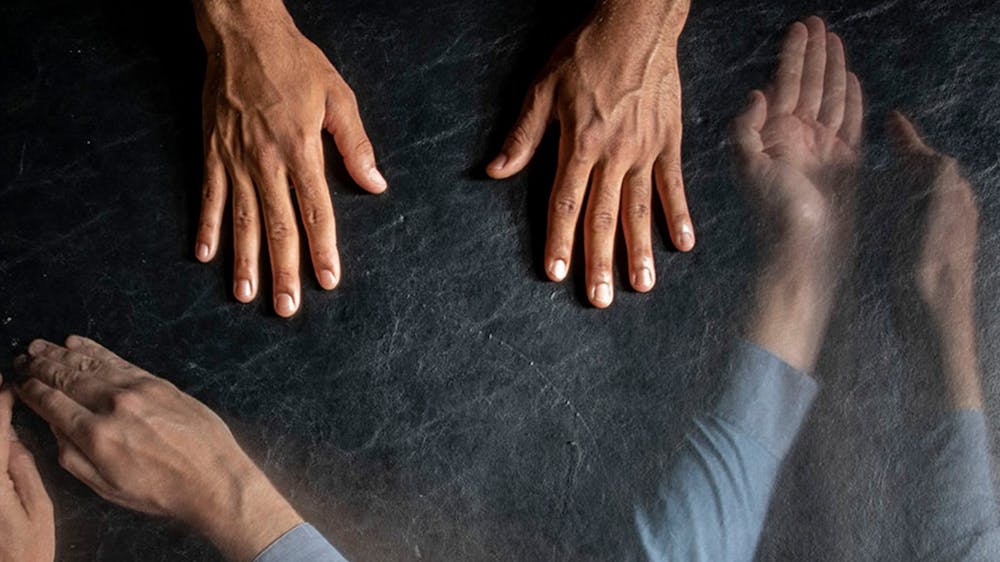In a time when Zoom meetings are nearly ubiquitous, picking up the phone for a conversation with a stranger may seem like an everyday activity. But in Carolina Performing Arts' current production of theater troupe 600 HIGHWAYMEN’s newest performance, this simple gesture is anything but a typical encounter.
600 HIGHWAYMEN is a New-York-based experimental theater duo and married couple composed of Abigail Browde and Michael Silverstone. Their most recent work, "A Thousand Ways Part One: A Phone Call," will run from March 1-14 at Carolina Performing Arts.
After registering on Carolina Performing Arts’ website, audience members will receive a phone number the day before their scheduled time slot. From there, participants will dial the number and be placed on the line with a stranger and a robotic voice which will guide the participants through their journey with each other.
Christina Rodriguez, associate director of marketing and communications at Carolina Performing Arts, said 600 HIGHWAYMEN's work asks provocative questions about society and the way people relate to each other.
“Their performance called 'The Fever' is truly something I still think about,” Rodriguez said. “The kind of theater that they create has elements of participation in it, and that was the case in that performance, and is most certainly the case with 'A Thousand Ways'.”
Rodriguez said Carolina Performing Arts has also committed to producing the final two parts of "A Thousand Ways," and that these next chapters will mirror the path of the pandemic. Rather than taking place via phone call, part two involves two strangers in an in-person conversation, and part three uses a group of performers following a shared script.
She added that tickets are limited, and ticket-holders must come to the performance so their partners can participate.
“It’s a really interesting and unique way to approach theater in this remote landscape instead of sitting at your computer and watching a livestream, though there is value in that as well,” Rodriguez said.
Likewise, Megan Whitaker, artist services manager at Carolina Performing Arts and project manager for "A Thousand Ways," feels the performance allows audiences to engage with one another in an active experience, which is not usually an opportunity during online shows.



